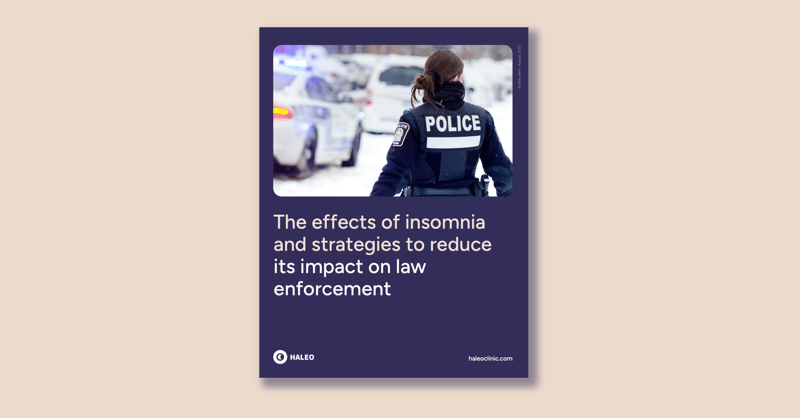Whitepaper - The Repercussions of Insomnia on Police Officers
Published on: September 19, 2023 | Reading time: 🕐 15m

Police officers are exposed to a higher risk of sleep disorders, a health problem that can impair their ability to make decisions and lead to professional errors and accidents. Indeed, it is clinically proven that the prevalence of insomnia is disproportionately higher in law enforcement, and because of the work police officers perform, the consequences of these sleep disorders are more serious.
Among the key elements:
The prevalence of chronic insomnia in law enforcement:
Chronic insomnia is highly prevalent among law enforcement officers, affecting 53% of them—three times more than the general population. This disparity is attributed to irregular schedules and the constant stress and risk officers face. Insomnia poses serious health and safety threats, with increased accidents and reduced job performance. This issue also extends to firefighters and paramedics, where 93% report major sleep disorders.
Evidence of a two-way relationship between sleep and mental health problems:
Insomnia is a pivotal factor in the development and persistence of various mental health disorders, including anxiety, depression, chronic pain, substance abuse, burnout, and suicidal thoughts. Those with sleep disorders tend to experience emotional and physical suffering, heightened pain and anxiety, and an increased risk of major depression if left untreated. In law enforcement, sleep disturbances, particularly among police officers, worsen during shifts, amplifying the risk of mental health issues, including depression and PTSD.
.png?width=1080&height=1080&name=whitepaperLAW%20-%20Cover%20EN%20(1x1).png)
Need help with your sleep?
We can help you! HALEO offers a solution that can contribute to productivity and well-being through quality sleep. Schedule a discovery meeting by booking your time here.





